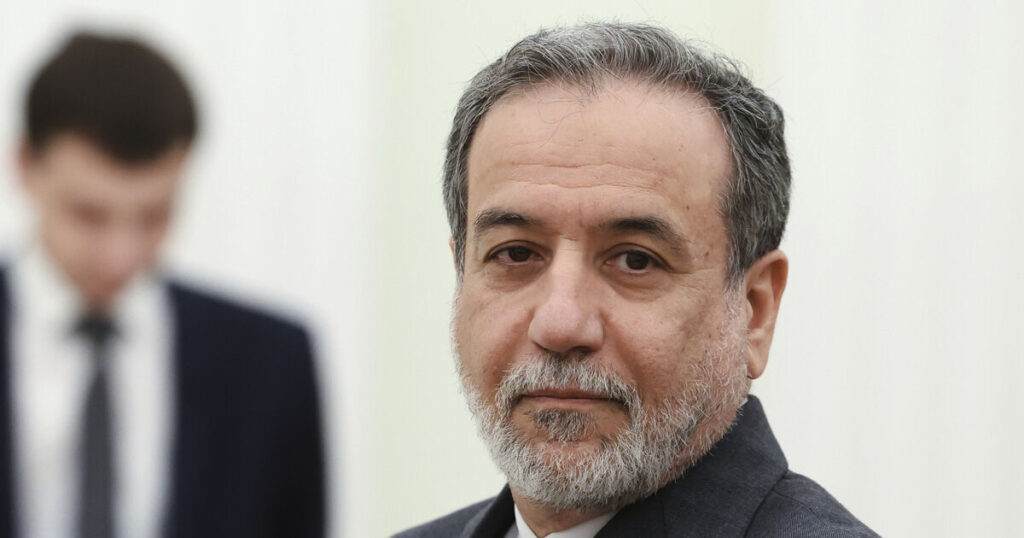A top Iranian diplomat has stated that the recent US attacks on three of Iran’s nuclear sites have “complicated” the possibility of new negotiations regarding Iran’s nuclear program.
Iranian Foreign Minister Abbas Araghchi informed state television that these attacks caused “serious damage.”
The US was a signatory to the 2015 nuclear deal, wherein Iran agreed to restrict its uranium enrichment activities in exchange for sanctions relief and other benefits.
This agreement collapsed after President Donald Trump unilaterally withdrew the US during his first term in office.
Mr. Trump has indicated his interest in renewed talks with Iran, suggesting a meeting between the two nations next week.
Mr. Araghchi suggested that while his country might consider future talks on its nuclear program, such discussions are unlikely to commence imminently.
“No agreement has been made for resuming the negotiations,” he stated. “No time has been set, no promise has been made and we haven’t even talked about restarting the talks.”
Mr. Araghchi asserted that the American military intervention “made it more complicated and more difficult” to hold talks.
Israel launched an attack on Iran on June 13, targeting its nuclear sites, defense systems, high-ranking military officials, and atomic scientists.
During the 12 days of strikes, Israel claimed to have killed approximately 30 Iranian commanders and struck eight nuclear-related facilities and over 720 military infrastructure sites.
According to the Washington-based Human Rights Activists group, more than 1,000 people were killed, including at least 417 civilians.
Iran responded by firing over 550 ballistic missiles at Israel. While most were intercepted, those that penetrated caused damage in numerous areas, resulting in the deaths of 28 people.
The US then intervened on Sunday, targeting Iran’s three most critical sites with a barrage of cruise missiles and bunker-buster bombs delivered by B-2 bombers, designed to penetrate deeply into the ground to damage heavily fortified targets.
In retaliation, Iran launched missiles at a US base in Qatar on Monday, but no casualties were reported.
Mr. Trump claimed that the American attacks “completely and fully obliterated” Iran’s nuclear program. However, Iran’s Supreme Leader Ayatollah Ali Khamenei accused the US president on Thursday of exaggerating the damage, stating that the strikes did not “achieve anything significant.”
Speculation has arisen that Iran relocated much of its highly-enriched uranium prior to the strikes, a move it reportedly informed the UN nuclear watchdog, the International Atomic Energy Agency (IAEA), it planned to make.
Even if this proves accurate, IAEA Director Rafael Grossi told Radio France International that the damage inflicted on the Fordo site, built within a mountain, “is very, very, very considerable.”
He emphasized that centrifuges are “quite precise machines” and that it is “not possible” that the concussion from multiple 30,000-pound bombs would not have caused “important physical damage.”
“These centrifuges are no longer operational,” he stated.
Mr. Araghchi himself conceded that “the level of damage is high, and it’s serious damage.”
He added that Iran has not yet decided whether to permit IAEA inspectors to assess the damage, but that they will be excluded “for the time being.”


